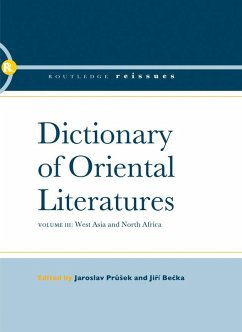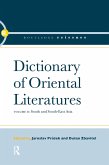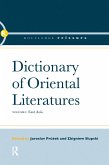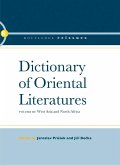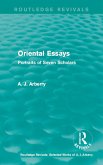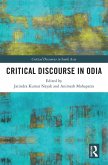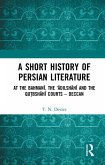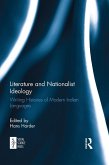The majority of entries give information about the life and work of the individual writers and poets of the classical, medieval and modern periods of the literatures included and also attempt to evaluate their writings from the historical and aesthetic point of view. The remaining articles describe literary terms, genres, forms, schools, movements etc.
The Dictionary has been prepared by the Oriental Institute in Prague under the supervision of a Advisory Editorial Board of European and American scholars of international reputation and is unique in that it is the fruit of the collaboration of over 150 orientalists from many parts of the world.
Contents include:
Volume I East Asia: The Far East, including Chinese, Tibetan, Japanese, Korean and Mongolian literatures.
Volume II South and South-East Asia: Ancient Indian, Assamese, Baluchi, Bengali, Gujarati, Hindi, Indian literature in English, Indo-Persian, Kannada, Kashmiri, Maithili, Malayalam, Marathi, Oriya, Panjabi, Pashto, Rajasthani, Sindhi, Tamil, Telugu and Urdu, Sinhalese, Nepali, Burmese, Thai, Cambodian, Malay and Indonesian, Javanese, Vietnamese and Philippines literatures.
Volume III West Asia and North Africa: The Near East and Egypt, Central Asia and the Caucasus, Turkish, Persian, Afghan, Kurd and Arabic literatures, covering all the Arab states from Iraq in the East to Algeria in the West.
Dieser Download kann aus rechtlichen Gründen nur mit Rechnungsadresse in A, B, BG, CY, CZ, D, DK, EW, E, FIN, F, GR, HR, H, IRL, I, LT, L, LR, M, NL, PL, P, R, S, SLO, SK ausgeliefert werden.

